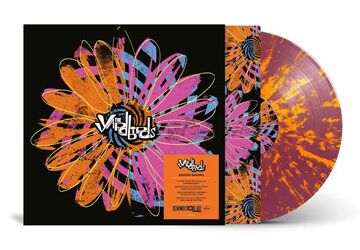
Formed in 1967, in Pacific Palisades, California, United States, by the brothers Ron (keyboards) and Russell Mael (vocals), Sparks marked its beginning in the Art Rock scene of the late ’60s to the early ’70s, alongside contemporaries such as David Bowie (“Fantastic Voyage”), Roxy Music (“Virginia Plain”), and Split Enz (“Under the Wheel”). Now, almost fifty years later, the resilient brothers are still sparking and igniting creativity. Armed with a studio discography of double dozen records—from 1971’s Halfnelson to the forthcoming A Steady Drip, Drip, Drip—Sparks really deserves the golden mark that it will achieve next year.
Scheduled for release on Friday, May 15th, 2020, via BMG Rights Management, A Steady Drip, Drip, Drip opens with the slow, sing-a-long staccato of “All That,” whose strong Pop sensibility is a warm welcome in the currently confusing time of a pandemic. The ensuing eventually up-tempo, “I’m Toast,” then builds up on its guitar angularity. With “Lawnmower,” Ron and Russell then showcase their trademark vocal harmonies and progressive arrangements, apparent in many of their earlier releases, such as “This Town Ain’t Big Enough for Both of Us.” Still in the same ornate direction, Sparks then delivers another master stroke, “Sainthood Is Not in Your Future.”
“Pacific Standard Time” is a change of pace; piano-oriented and string-laden, it oozes with Baroque Pop melodies in the same lake as Split Enz’s “Six Months in a Leaky Boat.” The following “Stravinsky’s Only Hit” is initially Kraftwerkian which then evolves into something theatrical and carnival-esque—dark and ominous, resonating Klaus Nomi (“Lightning Strikes”) and Nicholas Lens (“Flamma Flamma”). “Left Out in the Cold” is yet another shift in style; it is subtly Rock-oriented, reverberating faint echoes of The Alarm’s “Rain in the Summertime.”
The slightly distorted guitar then takes the lead in “Self-Effacing,” yet still bearing the overall vocal-dominant flare of the album. The piano-and-synth-led stomper “One for the Ages” is a bit Gothic, proper New Wave; it will remind the initiated of The Colour Field’s “My Wild Flame.” Festive and jolly, the horn-adorned “Onomata Pia” gives A Steady Drip, Drip, Drip a December-holiday flavor; it will fit well on a playlist that includes The Waitresses’ “Christmas Wrapping,” Paul McCartney’s “Wonderful Christmastime,” and Captain Sensible’s “Happy Talk.”
Apt for the current age, “iPhone” then struts with its robotic Synthpop sheen, aligning itself with similarly stylized songs such as “Synth Love” by Igo and “Chinese Whispers” by Yellow Magic Orchestra. Sparks then returns the listener to the merry-go-round and carousel sonic imagery of its latest offering as “The Existential Threat” marches in with its colorful clowns and bright balloons.
The penultimate track, “Nothing Travels Faster than the Speed of Light,” is a bit serious and portentous, almost out-of-this-world in Bowie-Nomi terms. Finally, Sparks grips up A Steady Drip, Drip, Drip with the melodramatic, onto-your-face satire of the Beatles-que “Please Don’t Fuck Up My World”—a perfect album closer, elevating the album onto the level of Sgt. Pepper’s Lonely Hearts Club Band, which is, after all, one of the landmarks of Art Rock/Pop, in which Sparks has been happily thriving in for the last nearly half a century.
With twenty-four albums to boot, Sparks surprisingly has not lost any of its musical brilliance. Following the heels of 2017’s Hippopotamus, A Steady Drip, Drip, Drip is not yet the last drop. Judging by the stylistic diversity of the contents of this latest oeuvre, one can certainly expect more from the songwriting tandem of the Mael brothers. In the meantime, savor the cornucopia of sounds of A Steady Drip, Drip, Drip, timely amidst many people’s ongoing lock-down mode. Cryptic Rock gives A Steady Drip, Drip, Drip 4 out of 5 stars.





